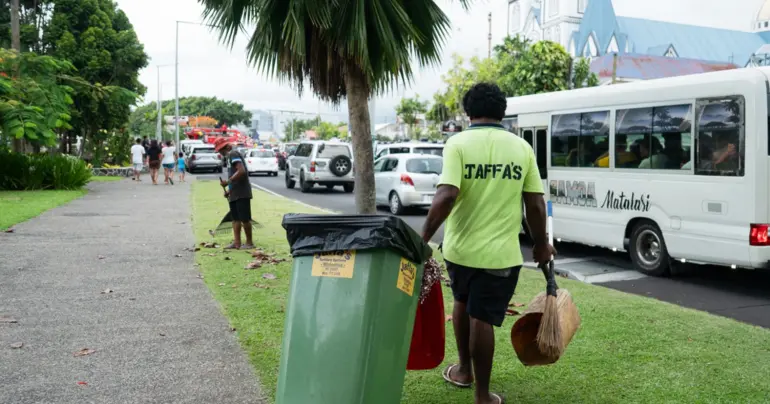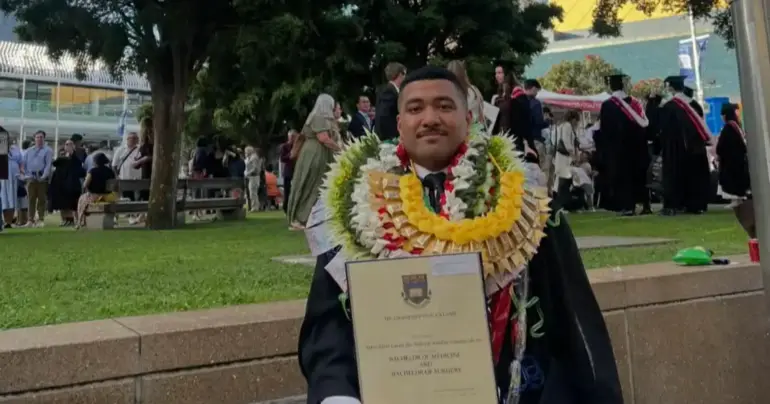Samoa can transition to clean energy: Report
Samoa is listed as one of the eight Pacific countries which can transition to 100 per cent renewables for less than a seventh of what Australia gave to the fossil fuel industry in handouts and tax breaks in the past year, according to a report.
As governments convene in Cook Islands for the 52nd Pacific Islands Forum Leaders Meeting, the report titled “Ki Mua: Towards a just transition for the Pacific” outlines the pathways for a Fossil Fuel Free Pacific.
The report reveals that a full decarbonisation of Pacific economies requires the Global North to take responsibility for their historical emissions by providing international climate finance to build Pacific renewable energy sectors.
Amidst the urgent call for global climate action, the 52nd Pacific Islands Forum Leaders Meeting in Cook Islands serves as the backdrop for the unveiling of the groundbreaking report, "Ki Mua: Towards a Just Transition for the Pacific." This report charts a transformative path toward renewable energy adoption and equitable development for Pacific Island Countries (PICs).
The report's conclusion underscores the immense value of a global phase-out of fossil fuels, highlighting the profound benefits this transition holds for the Pacific region. A renewable energy transition for 8 Pacific countries would cost less than a billion US dollars—1/7th the amount of money that Australia gave to the fossil fuel industry in handouts and tax breaks in 2022-23 and less than 0.5 per cent of the windfall profits the world’s top five fossil fuel companies made last year alone. With the imperative to limit global warming to 1.5 degrees, a fast and fair end to coal, oil, and gas expansion emerges as a lifeline against an array of climate threats.
Key findings of the report showed that the 15 largest greenhouse gas emitting nations are responsible for 71.88 per cent of all annual global emissions, while the 14 Pacific Island Countries (PICs) are responsible for just a fraction of a percentage of annual global emissions.
The upfront estimated cost of replacing all existing fossil fuel electricity generation in the eight PICs profiled in this report—Papua New Guinea, Fiji, Solomon Islands, Vanuatu, Samoa, Kiribati, Federated States of Micronesia, and Tuvalu—ranges from $691 million USD to just over $1 billion USD, depending on the specific technology mix.
A full decarbonisation of Pacific economies will lead to benefits quite apart from the obvious climate mitigation gains, including in the areas of public health, energy accessibility and economic development, disaster resilience, political independence, and global climate mitigation advocacy.
A just transition must go beyond replacing one technology with another, and encompass a holistic approach to economic development in the Pacific, characterised by economic diversification, poverty eradication, decentralised renewable energy systems, and the retraining and redeployment of fossil fuel workers.
A genuine and full energy transition in the Pacific will not be possible without Global North nations providing substantial climate finance and expertise sharing in relevant sectors.
Pressure is mounting on Pacific leaders, particularly Australia and New Zealand, to unite in the call for a fossil fuel phaseout as they convene in Rarotonga to discuss the implementation of the 2050 Strategy for the Blue Pacific Continent aimed at creating a resilient Pacific Region.
Fossil-fuelled climate change is the single greatest threat to the livelihoods, security and well-being of the peoples of the Pacific. Australia, which is seeking to host the 2026 UN climate conference with Pacific nations, faces controversy for being one of the world's biggest exporters of coal and liquefied natural gas. Additionally, just this week, the opposition backed an alarming new bill which would allow carbon dioxide to be pumped into international waters.
While the Pacific bears minimal responsibility for the climate crisis—only contributing a fraction of a percentage of annual global emissions—it confronts barriers such as upfront costs, technology gaps, and limited access to expertise. International climate finance, funded by those most historically responsible for global greenhouse gas emissions, is vital to enable the Pacific region to build robust renewable energy sectors towards a fossil fuel-free future.
In March, a bloc of six Pacific island countries, including Vanuatu, Tuvalu and Fiji, launched the “Port Vila Call for a Just Transition to a Fossil Fuel Free Pacific” which urged Pacific and global leaders to spearhead the global phase out of coal oil, and gas, and commit to leading the global alliance to negotiate a Fossil Fuel Non-Proliferation Treaty to govern the end to fossil fuel expansion and a global just transition.
Dr. Nikola Čašule, lead author of the Ki Mua Report, said the report demonstrates how the energy transition can be a win-win for the Pacific, if it is implemented through a holistic approach to economic development, characterised by economic diversification, poverty eradication, decentralised renewable energy systems, and the retraining and redeployment of fossil fuel workers.
Auimatagi Joe Moeono-Kolio, Chief Advisor, Pacific, of the Fossil Fuel Non-Proliferation Treaty Initiative, said: “As leaders convene at the Pacific Islands Forum Leaders Meeting, the report's insights galvanise collective efforts to combat the climate crisis, foster sustainable growth, and honor the Pacific's commitment to a fossil fuel-free future. In the past year, Australia has handed out 7 billion USD to the fossil fuel industry.”











